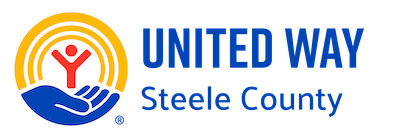United Way and Community Leadership
Stories about the breakdown in the way we talk to and about each other have been all over the news and social, and other, media in the past couple of weeks. I heard a couple of programs on MPR discussing the effect of the quality of our words on our civility with each other. Pastor Loren Olson wrote a great editorial about it in the Pastor's Perspective column in the August 10th edition of this newspaper. In his column he reminds us to "watch our tongue" because what we say can motivate others to act, especially when we are leaders.
Leadership, as a personal attribute, is a complex topic. One dictionary defines it as someone who “guides or directs others” – so a top down approach. This is not the case in community leadership. I was honored to be nominated and selected for a Steele County cohort of the Blandin Community Leadership Program (BCLP) back in 2015. Blandin does an amazing job of connecting community leaders and teaching them what community leadership means and does. I’m so thankful for the training I received and the relationships I made while I was there -the names of my fellows are peppered throughout this newspaper every week. Blandin taught us that Community Leadership is “working with others to develop and sustain the health of a community”. Community leaders do that by Framing ideas so that the what, how, and why are agreed upon, building social capital by developing and maintaining relationships throughout the community, and mobilizing resources so that ownership is shared across partners.
One of the most important things I learned over my 8 months in the Blandin program was a concept of shared meaning which contributes in a big way to social capital. True communication is the creation of shared meaning, or common understanding, between those who are trying to communicate or make collective decisions. This is a foundational skill in the concept of community leadership which by definition requires us to think beyond ourselves and even beyond our individual skills and experiences in order to devise solutions that are the most good for the most people. We must develop an understanding of the needs and perspectives of others in order to build a healthy community.
Creating shared meaning takes intention and work. It doesn’t happen by only talking and never listening. Often, within our local community as well as the greater cultural conversations, we line up on a side, seek “evidence” supporting our position and then, as a United Way colleague in another geography recently stated, we “belittle (“I told you so”), ostracize (“those people”) or ridicule (“what an idiot”)” those with a different opinion rather than learning about their experience and cultural position. If we don’t seek shared meaning between ourselves and the community members we share streets, schools, parks, and workplaces with then it’s human nature for us to assume “they” think the same way we do – then we’re surprised and critical when they don’t. Words like values, morals, and belief, even common good, poverty, and inclusion are completely arbitrary without taking the time to check in about how others define them.
Whether we are leaders or not, we have to choose sources of information carefully because the words we hear ultimately change us and the quality of our relationship with other people. If we do not create the opportunity to challenge our own assumptions in some way then we never get to come to shared meaning within our community or our culture.
We have a lot of opportunity ahead of us as a community. No one is going to do it for us. Only we, and we together, can build our better society – even if the one we have here in Steele County is pretty darned good. Community leadership requires that many organizations come together to solve or stave off our problems. United Way can’t do it alone. Our City or County can’t do it alone. Nor our school districts, churches, clubs, or workplaces. These institutions are populated by people, our neighbors, our friends, and our co-workers. Building our social capital and intentionally coming to shared meaning will allow us to make decisions and create new institutions that will make us all better.
One conversation at a time, one relationship at a time. Intentionally seeing and hearing each other will yield dividends of progress in all aspects of our community and cultural life.
